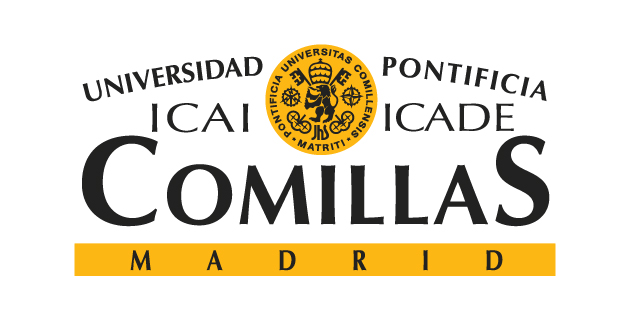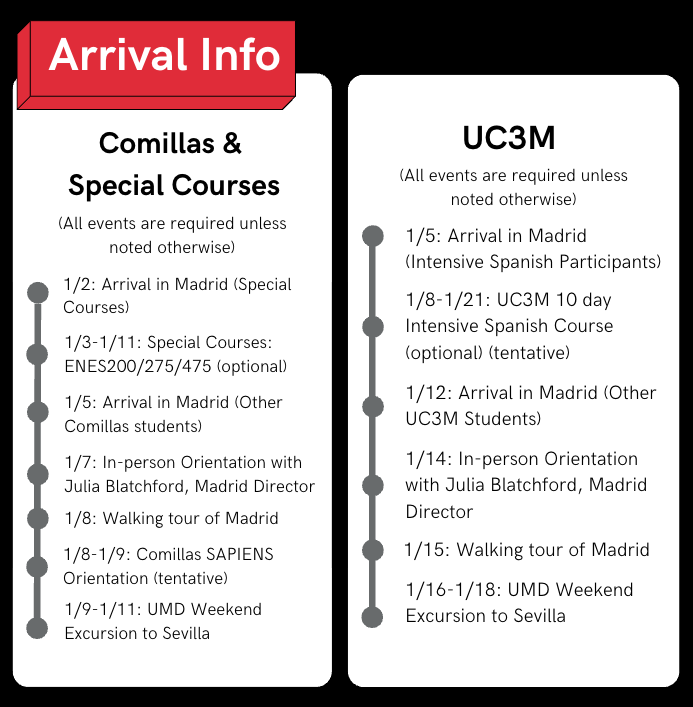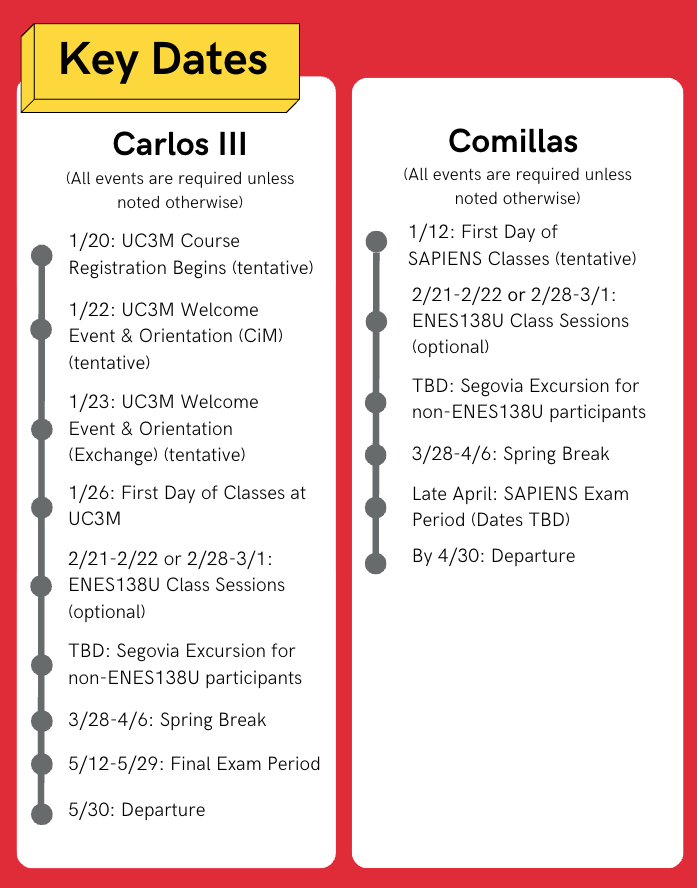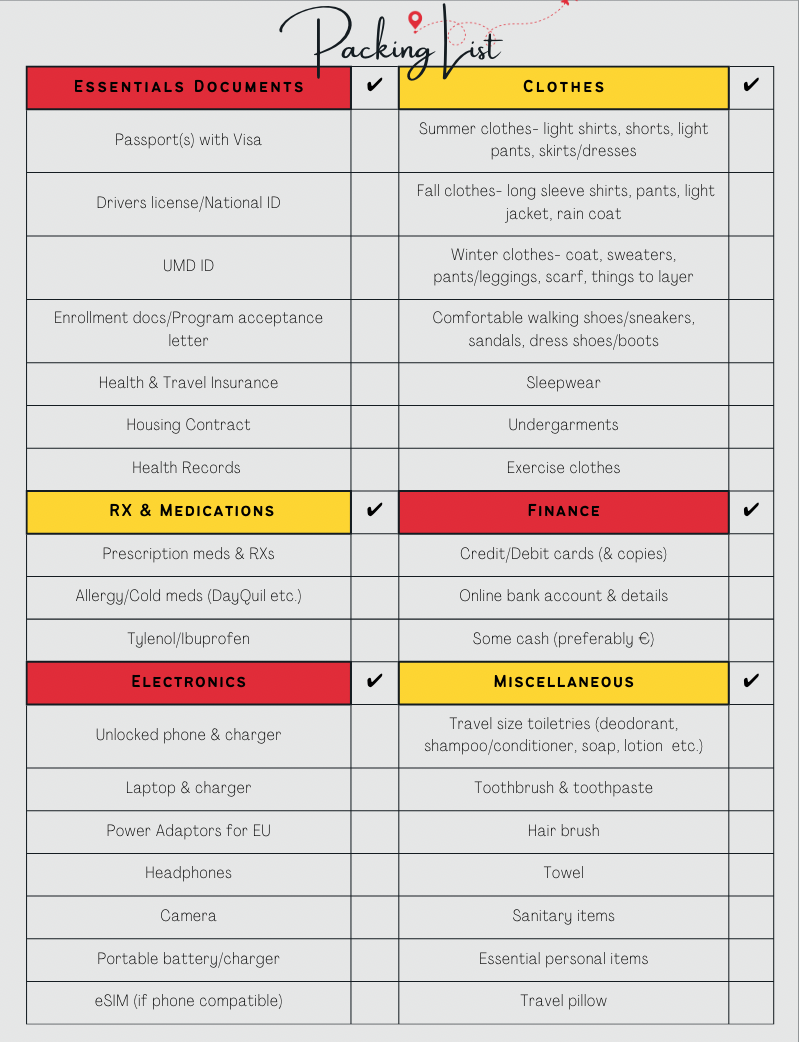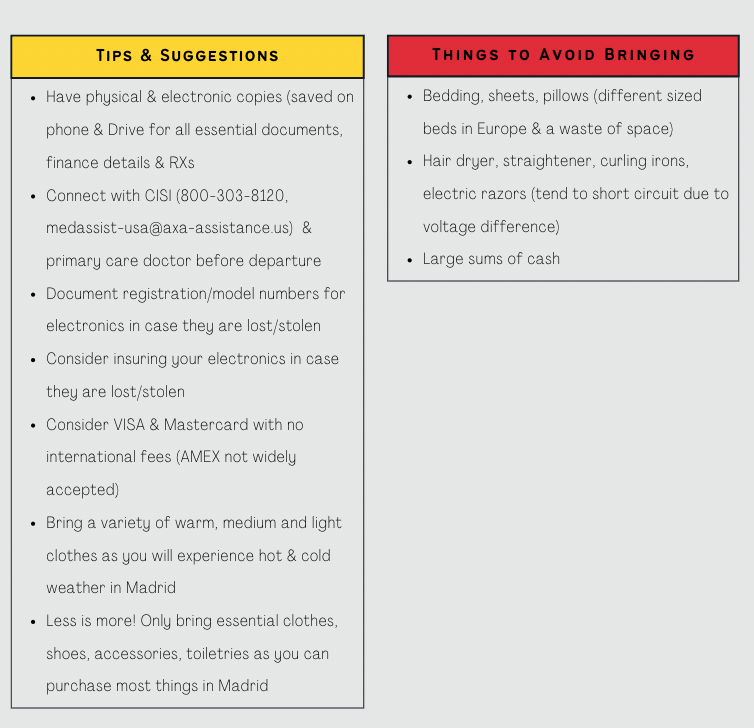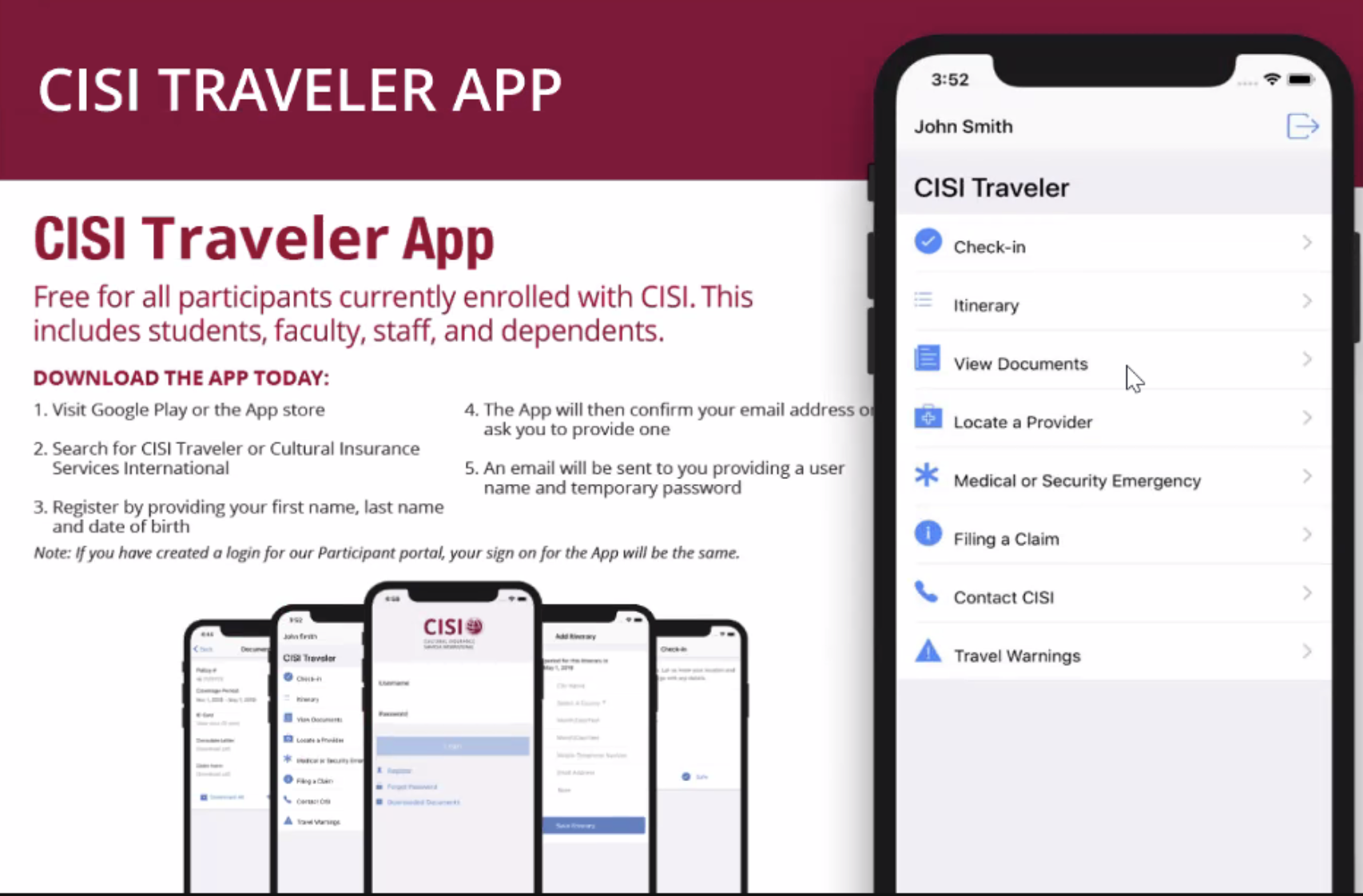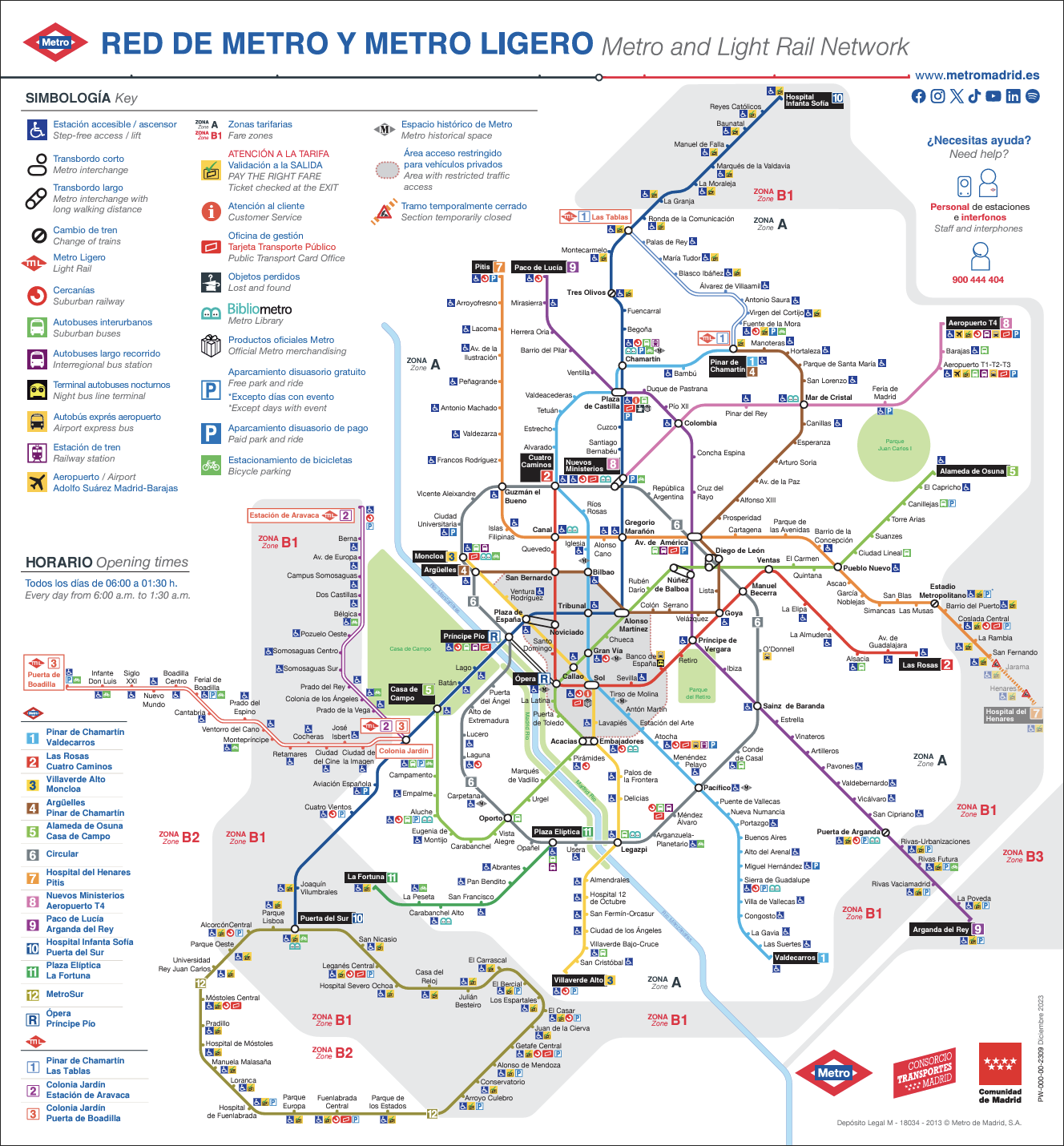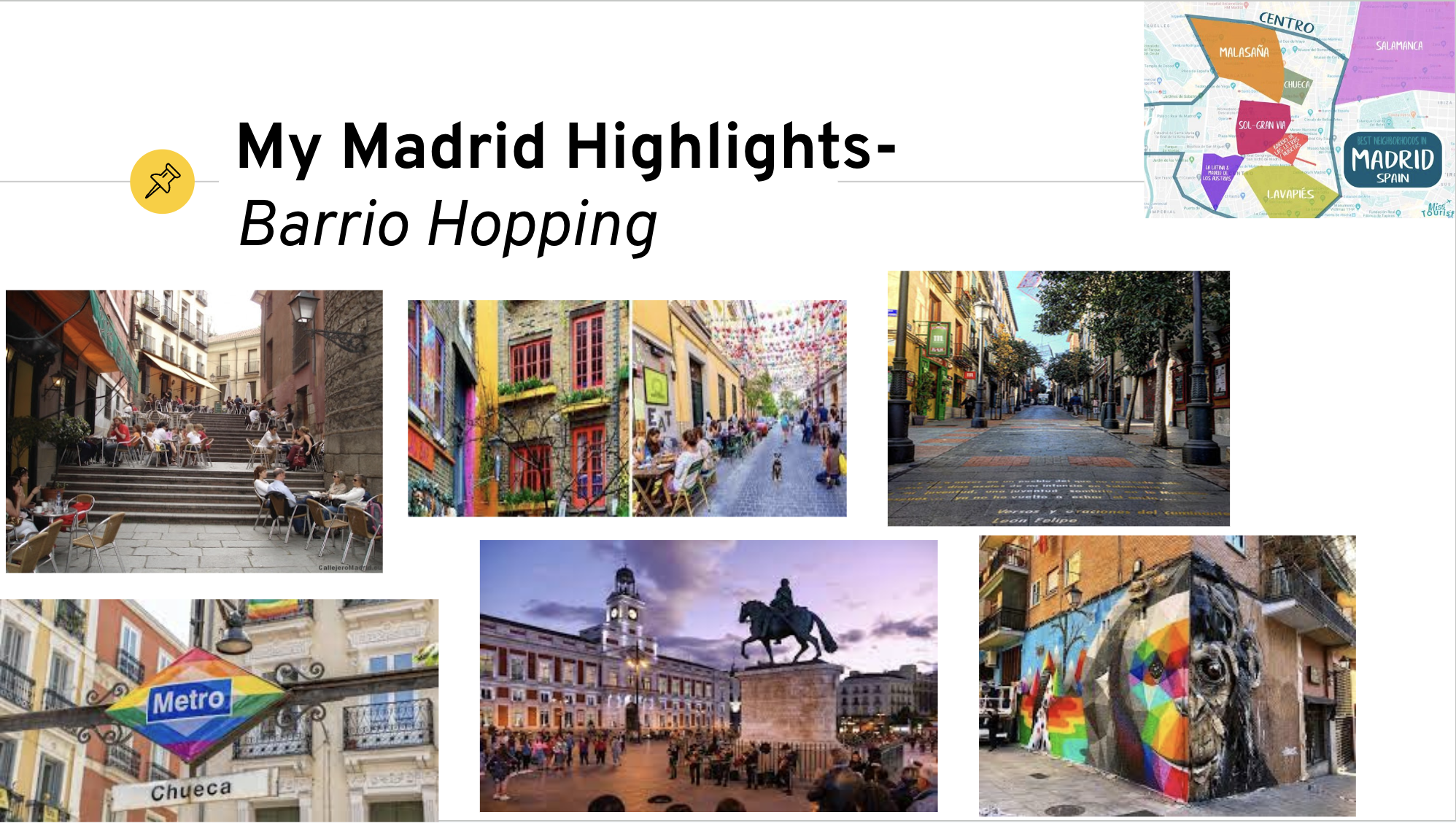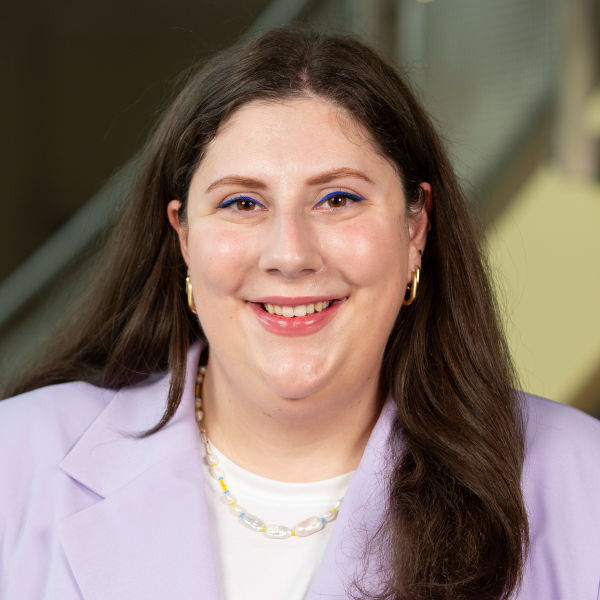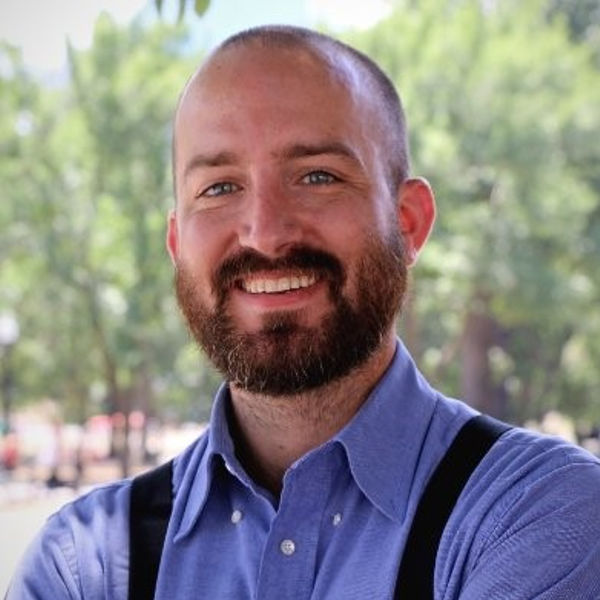What does housing look like on this program? UMD does not offer or manage housing in Madrid. Instead, students are allowed to pick their own accommodation to find what works best for them. Most opt to live in shared apartments in Madrid city center with other students studying abroad (from UMD or with other international students).
Why this housing option? It allows you the most flexibility and to find what works best for you! (neighborhood, budget, living with friends/other UMD students) Living on campus isn't common in Spain. Students typically commute to campus and live in the city center to take advantage of cultural activities.
Why book with our partners? Housing in Madrid can be tricky which is why we’ve secured partnerships with 4 companies that we have verified as safe & legitimate and offer apartment style housing options all over Madrid. These companies all have an on-site office and offer a direct contact for our students to reach out to either during the booking process or if an issue arises.
What are the benefits to working with our partners? These companies are used to working with students and young adults, have easy to use portals with a large variety of apartment options, provide detailed listings with photos and property details, and offer a booking discount for UMD students!
Keep in mind that these are independent companies with which you will reserve an apartment and then sign a contract with a property manager. Since this is an agreement between the company and you, we are limited in the support that we can provide should housing issues arise during your semester abroad.
Suggested Housing Providers in Madrid
The four options below are ones that have been vetted by the University of Maryland. UMD does not offer or manage housing in Madrid, but we have direct contacts at each of the providers below which allows us to better support students if needed.
Keep in mind that these are independent companies with which you will sign a contract.
Note: Rent is generally paid on a monthly basis on the 1st day of the month in Spain. In most cases, even if you arrive/depart early you will need to pay rent for the entirety of the month. However, this depends on the housing company and the details of your lease agreement.
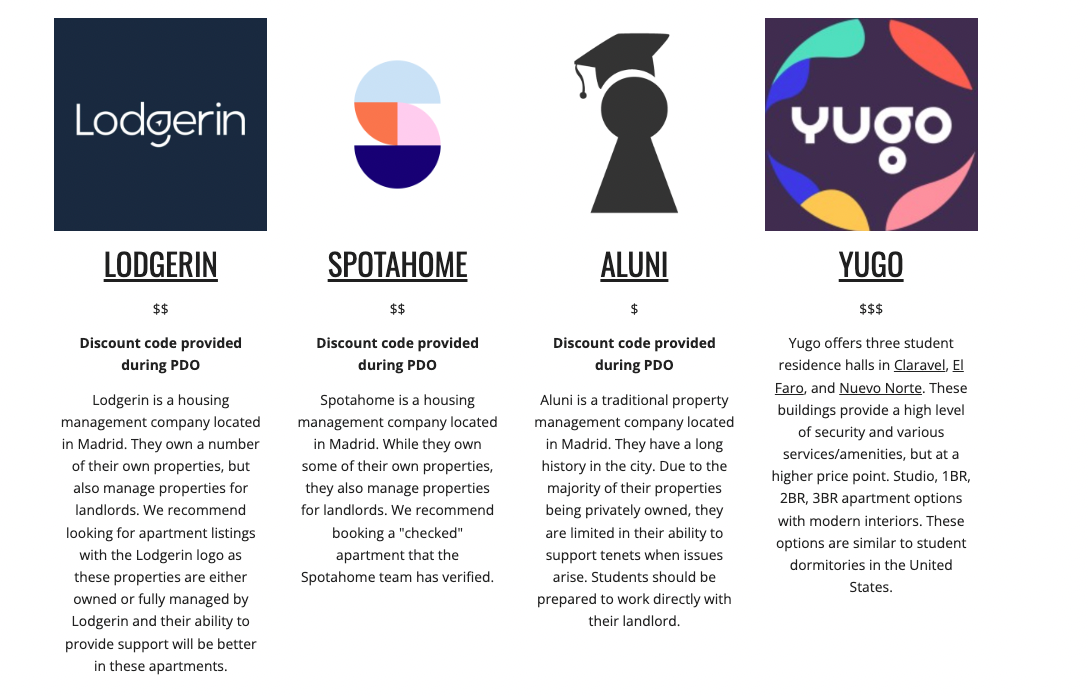 When should I book my housing? This is an important item to prioritize once you commit to your study abroad program. For fall students we recommend organizing your housing by the end of May, and for spring students by the end of November.
When should I book my housing? This is an important item to prioritize once you commit to your study abroad program. For fall students we recommend organizing your housing by the end of May, and for spring students by the end of November.
Booking Considerations
Click here to review important considerations while working through the booking process.
Below are examples of where to look for important details with our partner providers!
Each apartment listing should clearly include:
- Rent, deposit & additional fees
- Utilities information
- Property amenities & photos
- Rental policies & conditions
Learn how to spot the important details for property listings! Accepted students should review the Madrid housing information provided during the PDO and as part of the housing webinar.
Here is an example of what rental conditions might look like for Lodgerin:
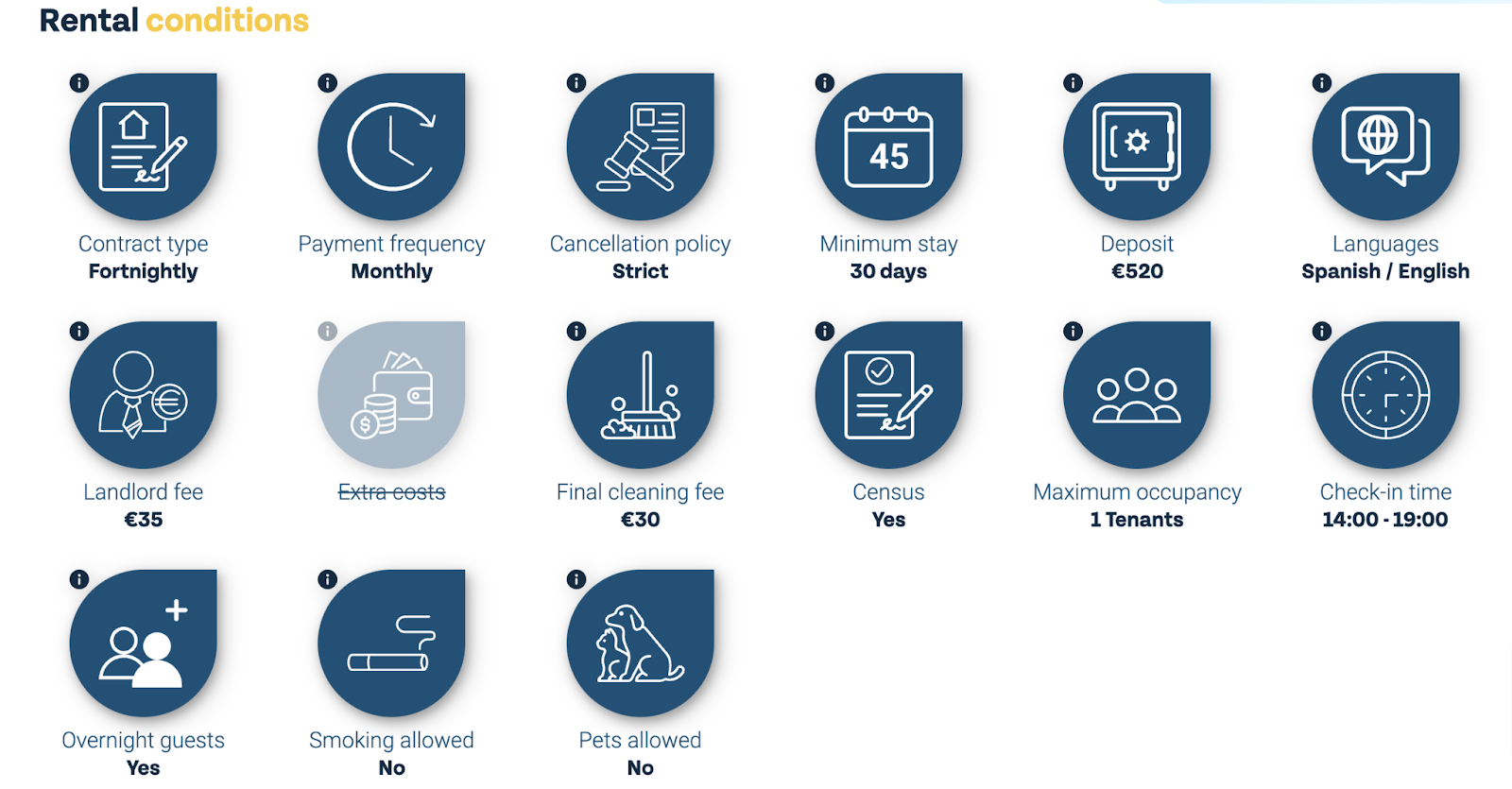
Pay attention to the utilities and services included in the price. There might be a note indicating that certain utilities have limits:

Always look to see if the owner or property is ¨Verified¨. This means that the housing company has verified the owner and they have had at least one successful booking in the past. If the property is verified, this means the housing company has seen the apartment and confirms it is being fairly represented:


When making your booking make sure you understand the payment breakdown. If you have any questions, clarify them with the housing partner. Also, do not forget to use the UMD discount code!:

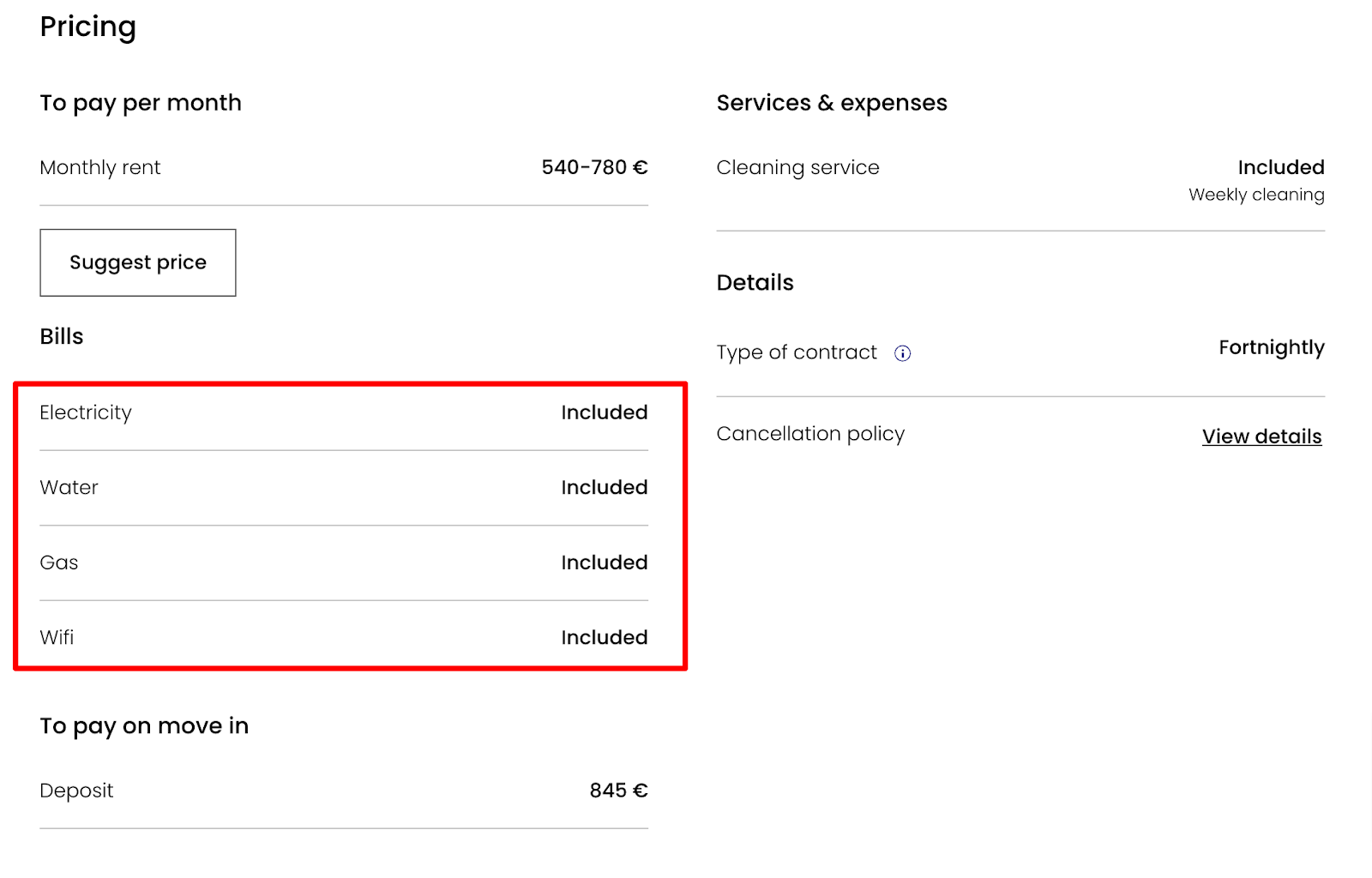
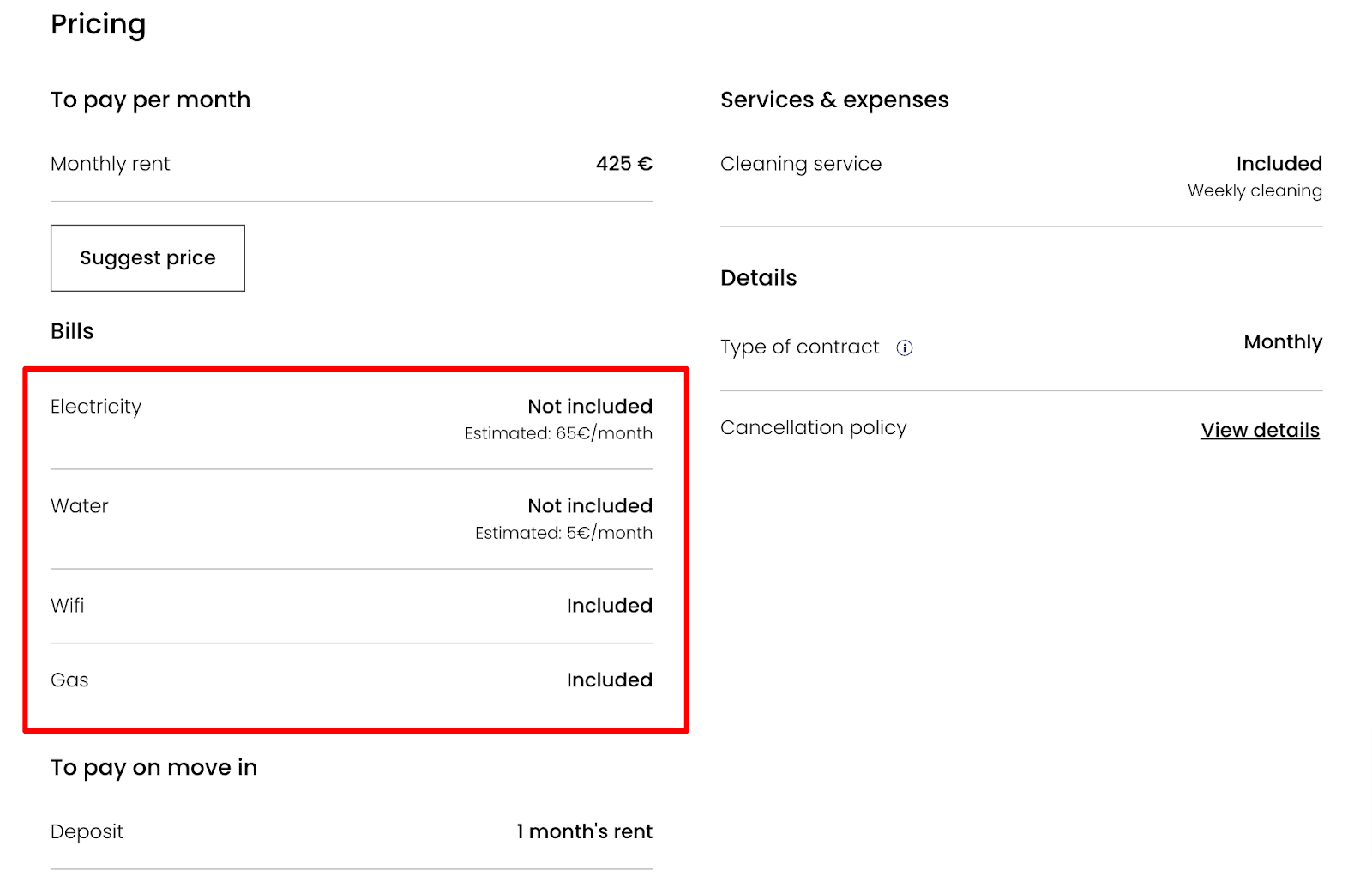
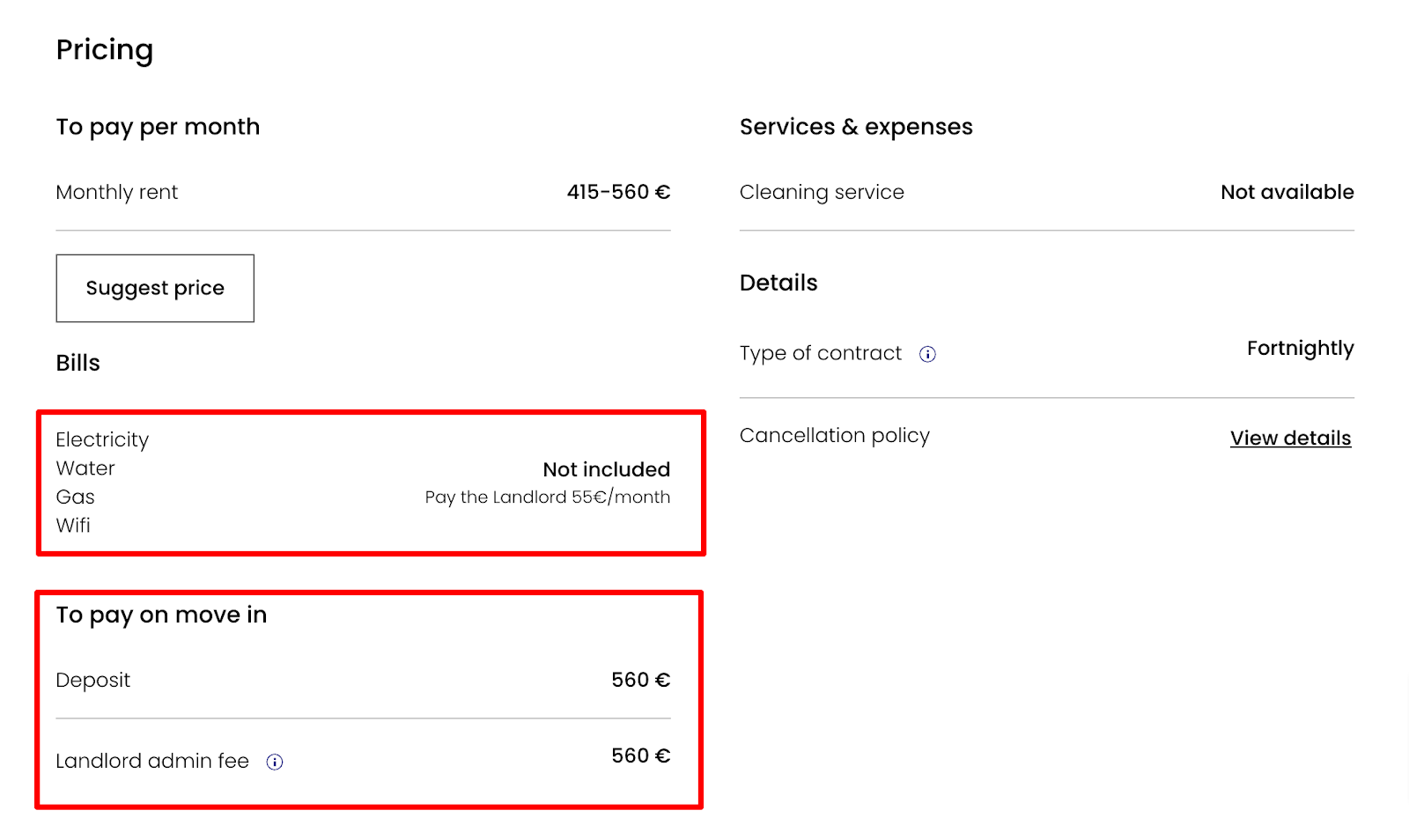
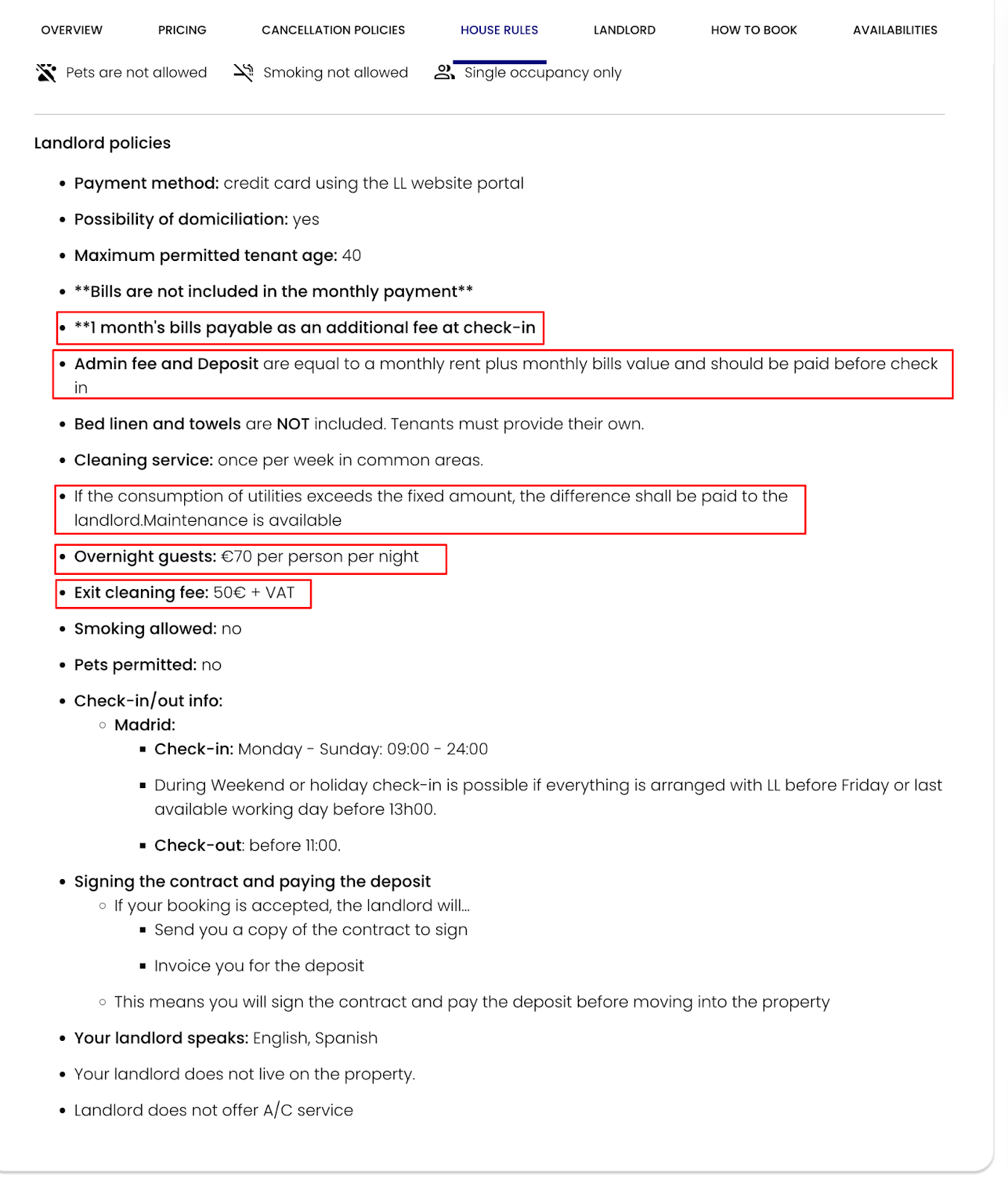
Students can go through the housing process on their own, live with friends, or other UMD students. If you are looking for a roommate, you can use the program contact sheet that was shared with you to connect with others looking to form a housing group.
If you already have a roommate group established, you can reach out to the housing provider directly to let them know how many of you are planning to live together, what areas you want to be near, and for housing recommendations.
Getting to UC3M & Comillas: Recommended Areas to Live
Most students prefer to live within the city center of Madrid out of convenience and because they want to be near most major sites (circled in blue). In terms of safety, we recommend looking for housing within the highway M-30 (circled in red). Attached is a map outlining those areas:
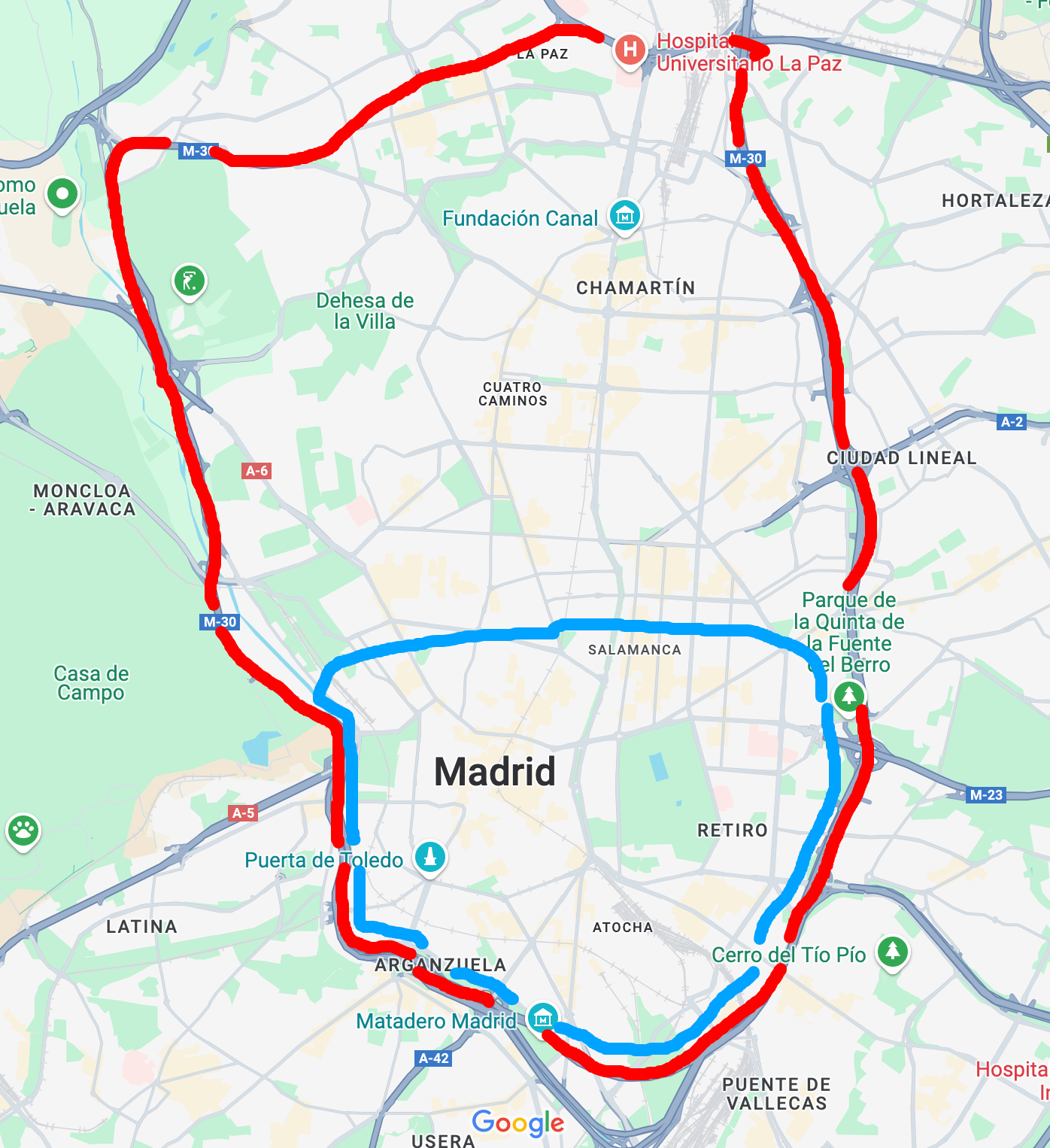
Neighborhoods:
The most common neighborhoods our students live in are: Sol, Embajadores, La Latina, Huertas/Barrio de las letras, Lavapies, Chueca, Atocha, Palacio
Want to learn more about these areas? Check out the links below to get a sense of where you might like to live!
Getting to the UC3M Leganés Campus:
The two recordings give you a sense of what neighborhoods are most convinient to live if you are taking a majority of your courses at the UC3M Leganés (STEM) campus. The first highlights the C-5 Cercanias train (commuter train) that goes from Madrid city center that stops in Leganés and the metros that connect to its different train stations (Embajadores, Atocha). The second one is a follow-up that looks at neighborhoods/areas the connecting metros run through. The light blue metro line 1 connects to both Atocha and Sol and the yellow line 3 connects to Embajadores and Sol amongst other areas.
- Línea C-5 RENFE Cercanías de Madrid - Watch Video
- Convenient metros to get to C-5 train stations - Watch Video
Getting to the UC3M Getafe Campus:
Getting to the UC3M Getafe (Business, Social Sciences, Humanities) campus is also an easy commute and the suggestions are quite similar because the previously mentioned metro lines also connect to the commuter train hubs that you will need to take.
From city center Madrid you will want to take the C4 Cercanias train (commuter train) which has a station in both Atocha and Sol. Living near these areas is helpful but also not necessary because there are three metro lines that connect to both of these stations. The light blue metro line 1 connects to both Atocha and Sol and the yellow line 3 connects to Sol. Additionally, the red metro line 2 connects to Sol which provides even more options.
The two recordings below describe the commute and what would be most convenient. The first highlights the commuter train C4 that stops in Getafe (Las Margaritas Universidad) and the metros that connect to its different stations. The second one looks at neighborhoods/areas the connecting metros run through.
Getting to the Comillas Campus:
If you are going to Comillas, there are three nearby metro stations (5 minute walk): Arguelles, Ventura Rodriguez & San Bernardo. Metro lines connecting to these three stations include the yellow metro line 3, red metro line 2, the gray metro line 6 or brown metro line 4. We recommend any central areas that connect to these lines within the inside of the M-30 highway.
Summary of central metro stops that could be convenient to live by:
The light blue metro line 1 stops: Rios Rosas, Iglesia, Bilbao, Tribunal, Sol, Tirso de Molina, Anton Martin, Estación de arte, Atocha, Menendez Pelayo
The red metro line 2 stops: Canal, Quevedo, San Bernardo, Noviciado, Santo Domingo, Opera, Sol, Sevilla, Banco de España, Retiro, Principe de Vergara
The yellow metro line 3 stops: Moncloa, Argüelles, Ventura Rodriguez. Plaza de España, Callao, Sol, Lavapies, Embajadores, Palos de la Frontera, Delicias, Legazpi
The brown metro line 4 stops: Argüelles, San Bernardo, Bilbao, Colón, Serrano, Velázquez, Goya, Lista, Diego de León
The gray metro line 6 stops: Moncloa, Argüelles, Principe Pio, Legazpi, O´Donell, Manuel Becerra, Avenida de America, Nuevos Ministerios
Click here to see the metro map and stops in more detail.
 When should I book my housing?
When should I book my housing? 
